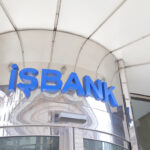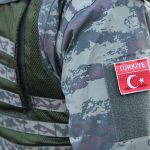September 8, 2022
In the wake of the Russian invasion of Ukraine and the introduction of sweeping international sanctions against Putin and his oligarchs, Turkey has provided a safe haven for Russian businesses, investments, and sanctioned individuals—particularly those oligarchs that have cemented Putin’s rule.
Erdogan has good economic reason for encouraging this “open door” policy, hoping that the move of Russian businessmen and their investments to Turkey will resuscitate its ailing economy ahead of the 2023 presidential election. But Erdogan’s warm welcome to Russian oligarchs reflects not just a need for cashflow but an affinity between two systems that use oligarchy to cement corruption, defraud their people, and send each other covert signals of diplomatic support while playing the west for fools.
Rigged Kleptocracy and “Oligarchic Capitalism”
This amassing of wealthy and loyal oligarchs has served several purposes for Putin and provided a model by which Erdogan has also consolidated his power. The vast private fortunes amassed by these authoritarians’ allies have acted as slush funds for boths regimes, permitting a degree of separation between government actors and the ill-gotten proceeds of a rigged economy. Finally, oligarchy helps soothe Western investors by presenting the illusion that Russia under Putin and Turkey under Erdogan operate as rules-based free markets.
Swiftly upon assuming the presidency, Putin set about establishing a new economic regime, one that he had trialed in miniature form in St Petersburg, whereby trusted individuals would be given majority stakes in key assets through rigged tenders, while minority interests could be traded on the open market, providing the semblance of a normally operating free market while also inviting much-needed foreign investment.
While it was obvious from the beginning that Putin’s system was rigged, the financial rewards of entering the fast-growing, fossil-fuel rich Russian market were sufficient for Western companies to claim ignorance.
When the oligarch Mikhail Khodorkovsky threatened to arrange the sale of a significant stake in oil and gas behemoth Yukos to the U.S. energy giant ExxonMobil, Putin moved swiftly to take back control: Khodorkovsky was arrested in October 2003 and his empire crushed by selectively applied back taxes. The blatant transparency of Putin’s maneuvers and the sham auctions held to parcel off Khodorkovsky’s assets to trusted individuals—such as Igor Sechin, owner of Rosneft—ensured that the lion’s share of Khodorkovsky’s empire was either returned to the Russian state or entrusted to Putin-allied oligarchs.
The Russian President has shown how oligarchy can be used to rig an economy while retaining the semblance of a rules-based free market to draw in, soothe and ultimately compromise western interests. In 2022, Forbes counted 68 powerful Russian oligarchs. In March of this year, despite losing $38 billion due to international sanctions, Russia’s ten most wealthy billionaires’ collective value still stood over $185 billion. Putin’s success in using oligarchy to take over Russian civil society and its economy has provided a blueprint for would-be autocrats around the world, especially Recep Tayyip Erdogan.
Meanwhile, Erdogan’s bid for an authoritarian Turkey was consolidated in 2018 with his implementation of Turkey’s new presidential executive system, which gave unprecedented powers to the President and decimated the old parliamentary system’s checks and balances along with the President’s traditional party neutrality. The 2018 vote was characterized by manipulation—as many as 2.5 million votes, according to one estimation—intimidation, and of course, AKP-controlled mainstream media. The sweeping powers of the executive branch allow the Turkish President to alter laws in order to stack election odds in his favor; most recently through reforms that will make it more difficult for smaller opposition parties to enter parliament and allow the AKP to use state resources for campaign events.
Turkish oligarchy has proven essential to this takeover of Turkey’s civil society, fueling a kleptocracy that rewards oligarchs in exchange for their assistance in securing an authoritarian agenda.
The mechanism by which this agenda is achieved is through a system of corruption and tender-rigging that serves to mask the state’s involvement in a market economy which only pretends to be free and rules-based. AKP-aligned oligarchs are guaranteed tenders to large, state-funded projects in exchange for their political and financial support. Meanwhile, the appearance of a free market economy that these oligarchs’ provide encourages western investment in overpriced and redundant projects, such as Honeywell’s involvement with Ronesans Holding—a deeply corrupt company that has been implicated in the Pandora papers—in building Erdogan’s $500 million presidential palace.
Erdogan’s kleptocratic system ensures that the best business opportunities go to the most loyal members of his party, or those with familial connections. He consolidates power by keeping his closest associates’ businesses—known as Turkey’s “zombie companies”—afloat through awarding billions of dollars in government public procurement tenders. During the AKP’s 20-year reign, it has altered the Public Procurement Law 192 times. This has allowed Erdogan’s closest allies to receive an overwhelming percentage of government tenders in “economy reforms.” Erdogan’s “oligarchic capitalism” attracts western investment in state-aligned companies that look like solid investment opportunities despite the lira’s severe depreciation, Turkey’s unruly inflation, and the ossifying unemployment rate.
Media Capture
Putin has also used oligarchs’ consolidated wealth to capture Russian media—a move that would become Erdogan’s most useful lesson from the Russian model. Oligarchs helped Putin wrest control over the free media, either by facilitating state takeovers or by taking control of media outlets themselves and, while nominally retaining them as privately owned entities, turning them into organs of state propaganda.
One of the earliest and most prominent of the Yeltsin era oligarchs targeted by Putin was Vladamir Gusinsky, a media tycoon and founder of the Media-Most holding company whose portfolio included NTV, Putin’s most vocal critic, as well as the newspaper Segodnya and the radio station Echo of Moscow. Gusinsky was arrested in June 2000 and only released after agreeing to sell Media Most for $300 million dollars, in what became known as the “shares for freedom” transaction. NTV was subsequently seized by Gazprom in April 2001. That same year, Boris Berezovsky was forced by the Kremlin to sell his 49% stake in the TV channel ORT to his onetime protege, now turned Putin-ally, Roman Abramovich, who in turn sold those shares to the state (making ORT 100% state-owned).
Turkey’s oligarchic system has followed a similar pattern of either oligarch-subsidized state appropriation or oligarch ownership of propaganda machines, allowing Erdogan to cement his rule through state capture of the free press. From as early as 2013, Erdogan’s closest allies have bought up Turkey’s largest media companies, while the state rewards them with millions of dollars’ worth of state tenders—often to carry out needless, inefficient, or environmentally damaging projects.
Turkey’s two largest media companies—Sabah and Dogan Group—were bought by coalitions of oligarchs in 2013 and 2018, respectively. Both purchases were achieved through a combination of oligarchs’ funding and disputed state bank credits. Celal Kalyoncu and his brother Ömer Faruk Kalyoncu, the head of Kalyon Holding, took over Sabah TV and were in turn awarded the tender to turn Taksim Plaza into a shopping complex—the project that sparked the Gezi Park protests. The purchase of Turkuvaz Media Group through the joint action of Kalyon Holding and others was similarly orchestrated in exchange for government tenders, as was Ethem Sancak’s purchase of Aksam Media Group in 2013. These quid pro quo purchases have allowed Erdogan to gain direct or indirect control of 90% of Turkish media.
Lessons for the International Community
Since Russia’s invasion of Ukraine on February 24, 2022, Erdogan has sought to position himself as a neutral party and a primary broker for cease-fire talks. While he initially condemned Russian aggression against Ukraine, he has also refused to fully support NATO sanctions against Russia and actively opposes NATO membership for Finland and Sweden. In recent days, he has once again threatened his fellow NATO member Greece with sudden invasion “one night when the time comes.” Most importantly, Erdogan’s admiration for and imitation of Putin’s oligarchy model has cemented his authoritarian rule and its grip over Turkish civil society. These affinities make the Turkish President a danger to his people and a danger to the international liberal order.




